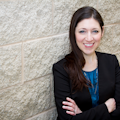How the 9/11 Terrorist Attacks Changed Us All
I can picture the morning of September 11, 2001 as though it were mere days ago. The sun bright and warm, the sky a gorgeous blue color. It was just another quietly joyful day at my college campus in the Midwest. I was headed to a geology lecture—a larger class than most with theater style seating and a couple hundred students. Upon settling in I remember vaguely hearing some scraggly haired guy in front say something about “a plane crashed into a building” in New York. The way he said it sounded like a joke, a rant, a minimally formed report of something that could be important … but probably wasn’t. Class carried on as usual.
When I returned to my dorm afterwards is when the strangeness set in. The disoriented feeling that shook us all from our safe, protected existence until that point. Instead of the constant, jangling music reverberating on the walls and plastic Frisbees gliding through hallways all was still. Everyone was packed in each other’s rooms, gathered around small T.V.’s and computer screens.
The footage (now iconic) played over and over. The crumbling towers. The pensive, live broadcasts. So much black smoke. It was all so surreal. So strange. So horrifying. We clung to reports for the who’s and the why’s and the what next. We called family, family of family and friends in New York. A good friend of mine from high school was living out there as a nanny at the time. (It would take her a great deal of time, effort, and anxiety to fly back to Wisconsin in the weeks that followed). At once this country to me now seemed unusually expansive. How could it be life existed still so unchanged outside my window, while a few states over terror reigned? To digest the news was like stepping into a Hollywood movie one watches passively: We were attacked! We were attacked?? I was incredulous to the concept. Without knowing the intricacies up front I knew one thing: It was a turning point. The event that woke many of my generation from their innocent, apolitical slumber.
Was this how our grandparents internalized the news when Japan’s bombing Pearl Harbor hit the wires? Maybe. But this event differed in a couple of significant ways: Japan declared war on the U.S. (while a war already raged). They targeted a naval base. These perpetrators had no country for us to quickly fix our strategy against … to neatly draw borders around. And the act was committed expressly to murder thousands of civilians. Another grisly distinction.
As the rubble of these structures smoldered—and the searches and response carried on—it was both comforting and energizing to observe how New Yorkers (and the rest of our country, too) rallied together immediately after the attacks in acts of patriotism and goodwill. That was reassuring to me at the time, and continues to be a reassurance of sorts. For despite the minor disagreements and grievances our freedom affords us, it was evident then that when circumstances are at their worst it is still the people of this country’s primary instinct to stand united and help one another navigate the darkness.
About the Author

Sara Scullin
Sara Scullin was the Editor of Law Enforcement Technology magazine, a monthly business-to-business publication that covers technology trends and best practices for public safety managers. LET is part of SouthComm Law Enforcement Media, which also publishes Law Enforcement Product News and Officer.com. Sara had covered the law enforcement industry since March 2008.
